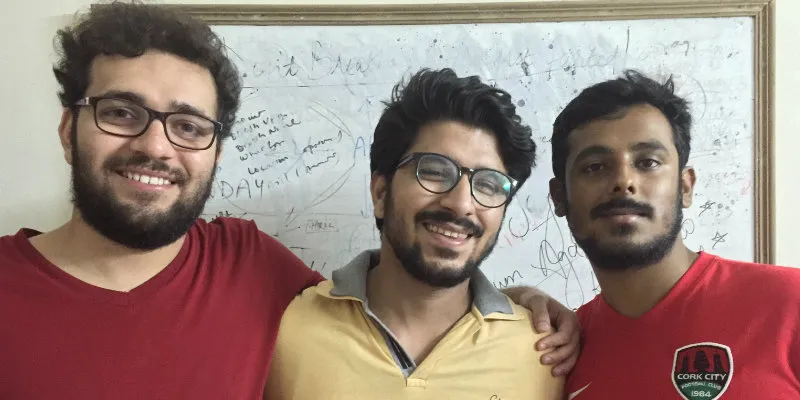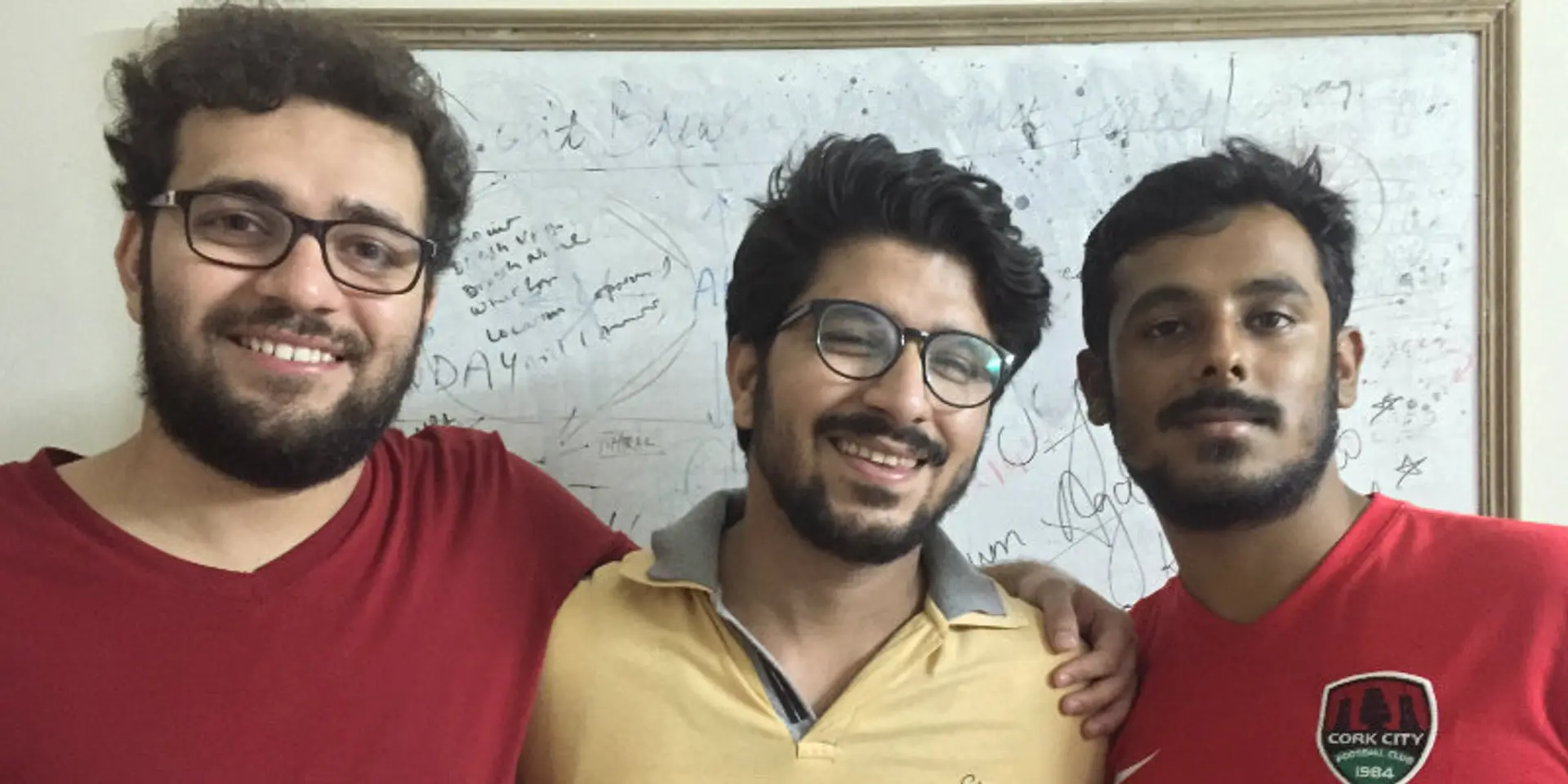Raising the bar — with DigiBharat, a merchant can accept payment even with a feature phone
This offline QR code solution, which allows users of UPI apps to scan the QR code at the store and pay instantly, plans to take the merchant count on its platform from 650 at present to 5,00,000 by 2020.
India is headed for an exponential increase in digital payments over the next few years. The digital payments industry in the country is expected to grow 10-fold to touch $500 billion by 2020 and contribute 15 percent of the GDP, according to a Google-BCG report.
Chirag Saini, Rishabh Jain and Dipesh Nagpal co-founded Finmo, a payments company, in June 2016 to tap into this multi billion-dollar opportunity while helping achieve the goal of a ‘Cashless India’.
Their flagship product DigiBharat is an offline QR code solution which allows users of BHIM or any other UPI apps like Phonepe, Pockets by ICICI, Chillr by HDFC, Samsung Pay, SBI Pay, Axis Pay, etc, to scan the QR code in stores and pay instantly, directly from their bank account to the merchant’s bank account.

DigiBharat can be scanned by more than 50 mobile banking applications including BHIM, Phonepe (Flipkart Group) and others. It comes with zero set-up fees, no rental and no maintenance fees. A merchant can accept payment even with a feature phone, without the need for internet connectivity or network connectivity at the merchant’s end.
Currently, the platform has more than 500 merchants across Delhi NCR and 150 merchants spread out across India.
One of the finalists of the PayPal India Inculator, the startup raised an undisclosed amount of seed capital in April 2017 from a group of HNIs and bankers.
The early days
Born and brought up in Jaipur, Chirag, 24, as a child wanted to become a football player. But his life goals changed when he got into VIT, Vellore. He wanted to change the tendency of shopkeepers to accept nothing but cash. He saw the problem from the viewpoint of students who had to go to an ATM to withdraw cash to pay for their shopping. It meant standing in a queue and the ATM running out of cash at times. Where merchants accepted cards, poor network connectivity and machine faults often rendered PoS machines useless. Then, wallets always had limits on receiving money and higher charges whenever the merchant is putting back into his/her bank account.
Chirag met Rishabh (his first cofounder) in college. Before starting Finmo, the duo worked with Practo and often discussed how to solve the problem they faced in making payments to the shopkeeper. He met the other co-founder Dipesh Nagpal at a fintech meet in Delhi.
“The biggest challenge we faced was the fact that we were not from a finance background and that the average age of the whole team is 22. We almost went bankrupt in April. We were left with four digits of capital in the bank, those were the most stressful days for us. Our belief in building a valuable product that can help any type of merchant to accept payments was more than the fear of losing out,” says Chirag.
Creating differentiation
With the help of the DigiBharat app, a merchant can track his daily transactions and payouts, request money from people abroad via a collect money request on his BHIM/UPI ID, generate a dynamic QR code where the consumer can directly scan and pay and add more team members.
"We are in the final stages of integration for Bharat QR which will also allow our merchants to accept payments via debit and credit cards, on the same QR code," says Chirag.
This will make our merchants capable of taking payments from more than 15 Bharat QR apps including Pockets by ICICI, Payzapp by HDFC, BHIM, etc. A customer can link his debit card and credit card to his mobile banking application and pay any merchant directly from his phone.
Growing by numbers
According to Chirag, they did not spend a penny on marketing as all growth was organic and by word of mouth. Before launching Digibharat, he and his team went to nearly 200–300 merchants in different geographies to learn to improve the merchant experience to accept payments via digital modes.
The startup earns revenue from the commission that it earns on each transaction. It plans to introduce multiple value added services on the DigiBharat app (which are in the pipeline), for which the merchant has to pay to enjoy those services.
DigiBharat has 15 employees, and though it is present only in DCR/NCR it caters to merchants across India. By 2020, they plan to have pan-India presence and 5,00,000 merchants on their platform.
Demonetisation has accelerated the growth of cashless transactions in the country, and India is now poised to become the third largest market for digital payments after the US and China. The country aims to close 8-9 billion digital transactions in 2017 and expects to reach 25 billion transactions by next year, according to the government.
With initiatives like Cashless India being pushed by the government along with introduction of new payment modes like UPI, Aadhaar Pay, and USSD payments, people and businesses alike are discovering the comfort of paying online. Along with the exponential growth in e-commerce, other verticals like education, government, and utility sectors have now started contributing massively towards building a digital economy.
Website: Finmo



